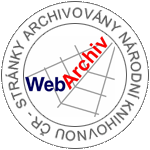Phenylketonuria
Phenylketonuria (PKU) is an autosomal recessive inherited disease of metabolism phenylalanine is caused by pathogenic variants in the gene encoding phenylalanine hydroxylase (PAH), a deficiency of which leads to the accumulation of phenylalanine in the blood and brain. In the Czech Republic (CZ), this disease has been part of laboratory newborn screening (LNS) since 1975, performed on all babies born in the Czech Republic. Early detection makes it possible to initiate early treatment, primarily of adherence to a strict lifelong low-protein diet with phenylalanine restriction and administration of special mixtures of phenylalanine-free amino acids. With good compensation for the disease, the child's normal development is enabled. Due to more frequent migration, we can also encounter children who have not been examined for PKU within the LNS. Therefore, it should always be in physicians' awareness, especially in the differential diagnosis of psychomotor retardation, microcephaly and convulsions.
Review
The treatment guideline for convulsions in an infant born in a developing country and entering the Czech Republic as an immigrant responds to the current socioeconomic situation, which has an impact on the area of health care delivery. In addition to the routine procedures, the algorithm considers new features in the differential diagnosis, which correctly includes the absence of newborn screening and the different epidemic situation in the patient's country of origin. The protocol is adequately structured, consists of clearly defined steps and leads to a correct diagnosis including a brief suggestion of causal treatment.
Sources
SADEK, Abdelrahim A., EMAM, Ahmed M. and ALHAGGAGY Mostafa Y. Clinicolaboratory profile of phenylketonuria (PKU) in Sohag University Hospital-Upper Egypt. Online. Egyptian Journal of Medical Human Genetics, vol. 14 (2013), issue 3, p. 293-298. ISSN 1110-8630, https://doi.org/10.1016/j.ejmhg.2013.03.001.
Learning targets
The student understands the diagnosis of metabolic diseases.
The student knows the basic principles in the treatment of phenylketonuria.
Key points
Differential diagnosis must also consider less common diseases.
The acute condition of the patient should be addressed first, then the cause of the convulsions.





